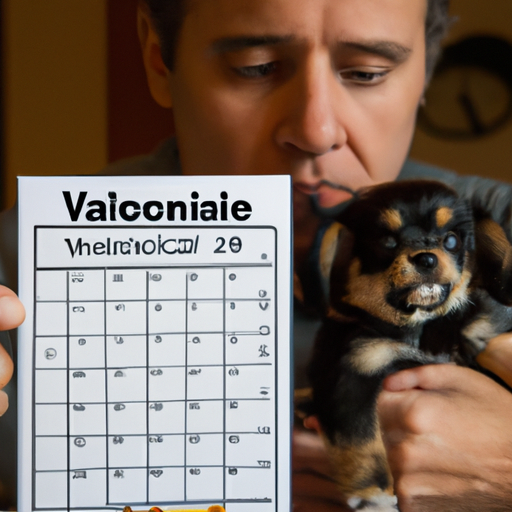If you’ve just welcomed a furry friend into your home, congratulations! Now, let’s get down to some serious pet parenting business. As a responsible caregiver, one of the first things on your to-do list should be ensuring your puppy gets the right vaccinations at the right time. You may be asking yourself, when do dogs get their first shots? This article will guide you through the initial stages of puppy vaccinations, why they’re essential, and what you can expect.
Table of Contents:
- Importance of Puppy Vaccinations
- When to Start Vaccinations
- Types of Vaccines
- Possible Side Effects
- Frequency of Vaccinations
- Cost of Vaccinations
- FAQs
Key Takeaways
- Puppies should get their first vaccinations at 6-8 weeks of age.
- There are core and non-core vaccines, depending on your dog’s risk factors.
- Vaccinations can have mild side effects but are generally safe and crucial for your puppy’s health.
- Vaccination schedules vary, but generally, your dog will need boosters annually or every 3 years.
- Costs can vary depending on factors like your vet, location, and the vaccines needed.
Importance of Puppy Vaccinations
Vaccinations are crucial for your puppy’s health. They protect your dog from a variety of diseases, some of which can be fatal. Vaccines work by training your puppy’s immune system to recognize and combat harmful viruses and bacteria. The American Veterinary Medical Association provides a comprehensive guide on pet vaccinations, which can be an essential resource for any pet parent.
An internal link to One Top Dog’s article on puppy training tips may also be helpful. Training your puppy goes hand in hand with ensuring their health.
When to Start Vaccinations
So, when do dogs get their first shots? Puppies should receive their first vaccinations between 6 and 8 weeks of age. Early vaccination is essential as puppies are susceptible to various diseases at a young age.
Types of Vaccines
There are several types of vaccines your puppy will need. These fall into two categories: core and non-core vaccines.
Core vaccines are recommended for all puppies and include:
- Distemper
- Parvovirus
- Canine Hepatitis
- Rabies
Non-core vaccines are recommended based on your dog’s risk factors and lifestyle. These might include:
- Bordetella
- Lyme disease
- Leptospirosis
- Canine influenza
Your vet can guide you on what non-core vaccines your puppy may need. This post on One Top Dog discusses various breeds and their specific needs, which can influence the vaccines needed.
Possible Side Effects
While vaccines are generally safe, they can have mild side effects. These might include lethargy, reduced appetite, or slight swelling at the injection site. More severe reactions are rare but can occur. If you notice any severe symptoms like difficulty breathing, hives, or severe vomiting, contact your vet immediately.
Frequency of Vaccinations
After the initial vaccination, your puppy will need boosters every 3-4 weeks until they’re about 16 weeks old. After that, they’ll require additional boosters at one year of age. Then, depending on the vaccine, they may need boosters annually or every three years.
Cost of Vaccinations
The cost of vaccinations can vary depending on factors like your vet, location, and the specific vaccines needed. On average, you can expect to pay between $75 and $100 for initial puppy vaccinations, with additional costs for boosters.
Remember, while there’s an upfront cost, vaccinations are an investment in your pet’s health, potentially saving you from expensive vet bills down the line.
FAQs
- What if my puppy misses a vaccine? It’s essential to stick to the vaccination schedule, but if your puppy misses a shot, contact your vet ASAP to reschedule.
- Can my puppy go outside before they’re fully vaccinated? It’s best to limit your puppy’s exposure to outdoor areas and other dogs until they’ve had their full set of vaccinations.
- Are there natural alternatives to vaccinations? While some natural remedies may boost your dog’s overall health, they can’t replace vaccines. Vaccinations are the only proven way to protect against certain diseases.
In addition to providing medical care for your puppy, remember that mental stimulation and socialization are also crucial for their development. This guide on puppy socialization from One Top Dog can help set your pup up for success.
Remember, as a caregiver, your role is to provide the best possible care for your new puppy, and that includes timely vaccinations. So, when do dogs get their first shots? At 6-8 weeks of age. So, schedule that vet appointment, and here’s to a happy, healthy life with your new best friend!



